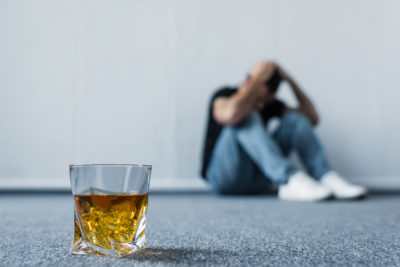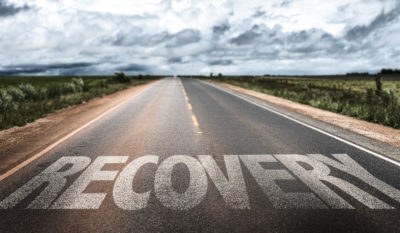
Addiction is not a bad habit or willful behavior. Addiction is a chronic disease that impacts the brain and body. There’s a difference between abuse of a substance and an addiction to it, most of the time requiring addiction treatment.
When you abuse a drug, you use it in a way that’s not prescribed to get a certain effect — typically a high. When you’re addicted to a drug, you crave or need that effect so badly that you can’t always stop yourself from abusing the drug. You might also make risky or inappropriate choices to ensure you can get the drug, such as lying or stealing.
Addiction can be physical, psychological or both. A physical dependency occurs when your body becomes so used to having the drug that it can’t function properly without it. Some drugs are more physically addictive than others because they make changes in your brain and body that help ensure this happens quickly.
A psychological dependency occurs when you mentally or emotionally depend on the drug or its effect. For example, if you depend on alcohol to dull your anxieties, anger or other issues so you can function at work or home — and you find yourself relying on this so much that you can’t see functioning without alcohol in your system — this is typically a psychological addiction.
What Are Some Types of Addiction?
Every person is different, and each person has a different risk for addiction. People can also get addicted to a wide range of substances and even some behaviors. Some types of addiction are summarized below.
- Addiction to legal substances, such as alcohol
- Addiction to substances that might have originally been prescribed to you, such as prescription painkillers (opioids) or anxiety medication
- Addiction to illegal drugs, such as heroin, crack cocaine, cocaine and stimulants
- Addiction to problematic or extreme behaviors, such as gambling, sex, stealing or porn
Signs of Addiction
When it comes to substance abuse disorders, the signs of addiction can vary somewhat depending on what types of things someone is abusing. However, drug and alcohol addictions do have some common signs individuals and loved ones can look for.
- Inability to stop using on your own. If you want to stop using drugs or alcohol but find that you can’t — that you’re repeatedly drawn back to using even when you commit to yourself that you won’t — this is a definite sign that you’re dealing with an addiction.
- Constant thoughts about the substance. When you’re addicted to something, it can dominate your thought life. You think about it when you’re not using, potentially looking for ways you can use again as soon as possible.
- Using despite negative consequences. When someone is caught in addiction, they may not be able to break out of the cycle on their own even if they have very good reasons to do so. They might continue using drugs or alcohol even if their relationships are suffering as a result or they are facing trouble in their career. They may even continue when faced with serious financial, health or legal consequences.
- Hiding their substance abuse. If someone knows they shouldn’t use but is addicted, they may lie, cheat, steal or engage in other inappropriate and uncharacteristic behavior to hide their substance abuse from others.
- Changes in mood or personality. Many drugs change the way someone’s brain works, which can show up as alterations in mood, personality, interests or even physical behavior such as eating or sleeping. These types of changes without other explanations can be a sign of addiction.
- Sudden or large changes in behavior. Changing social circles, completely new or different habits or behavior that’s not characteristic for an individual, such as suddenly showing no interest in school when they were previously a straight-A student, can also point to an addiction.
It’s important to note that almost all of the above signs can also indicate something else is going on. They could be signs of a mental or physical health issue or just that someone is struggling with something else in their life. While they’re common indicators of addiction, if you’re trying to understand and help a loved one, make sure you look at the big picture and consider all options for what might be impacting them.
Understanding Withdrawal Symptoms
 Another critical aspect of the disease of addiction is withdrawal symptoms. Withdrawal symptoms occur if you stop using a physically addictive drug. The changes these types of drugs make in your body create a sense of need for the drug. In short, your body thinks having the drug is normal and that something is wrong when you don’t have the drug, so it starts to exhibit symptoms that something is wrong.
Another critical aspect of the disease of addiction is withdrawal symptoms. Withdrawal symptoms occur if you stop using a physically addictive drug. The changes these types of drugs make in your body create a sense of need for the drug. In short, your body thinks having the drug is normal and that something is wrong when you don’t have the drug, so it starts to exhibit symptoms that something is wrong.
That’s crunching a lot of serious medical science into a basic explanation, but it gives you the idea. The symptoms of withdrawal vary by substance but can include:
- Digestive issues, including nausea, vomiting and diarrhea
- Changes to sleep, including insomnia or sleeping too much
- Fatigue
- Depression, anxiety or other changes to mood
- Muscle and joint aches and pain
- Trembling, shaking or other unsteadiness
- Paranoia
- Irritability
- Headaches
- Problems concentrating
- Dry mouth
- Changes to blood pressure
These symptoms, which typically last for a few days or weeks right when someone quits using a substance, can be enough to chase the person back into the cycle of addiction. Withdrawal symptoms can range from slightly annoying to bad enough to be physically debilitating. In some cases, withdrawals can actually be dangerous to physical health.
The Benefits of Seeking Professional Addiction Treatment
One of the benefits of getting professional addiction treatment is that you’re supported as you work through that critical withdrawal period. At New Day Recovery, we have a medical team on staff 24 hours a day to support individuals dealing with this part of detox and rehab. We keep you comfortable and safe with medication-assisted recovery and other methods as your body detoxes from whatever substance you’re struggling with.
Once you’re through the detox portion of your recovery journey, you’re better able to concentrate on other treatment methods and get benefits from them.
Other benefits can include:
- Working with caring, experienced counselors to understand the addiction cycle and your own triggers. This helps you identify where addiction began for you and what might drive you back to substance abuse.
- Learning and practicing healthier coping mechanisms in a safe, structured environment. You might realize that to break free of your addiction, you need better coping skills to deal with stressors and triggers. But discovering those skills and putting them into daily practice is easier said than done. Through individual and group therapy, recreational activities and daily life in an inpatient or outpatient rehab, you can put these new skills to the test and grow them.
- Getting out of the environment that may be contributing to your addiction. A residential rehab program lets you break free of various environmental factors that could be making it harder for you to seek sobriety. Within this new location, you are freer to concentrate on your overall health and wellness, including your addiction.
- Holistic support, which can include nutritional, exercise, career and other life skills education. Treating your body, mind and spirit well can play an important role in recovery.
- Personalized treatment plans for during and after recovery. You work with knowledgeable professionals who offer advice about best practices and what might be optimal given your circumstances, health and goals. They also help you plan for aftercare so you continue with some level of support into your long-term recovery.
Types of Addiction Treatment Available
Your life, your body, even your addiction — these are unique. They don’t look exactly like anyone else’s, which means your rehab and recovery shouldn’t be a cookie-cutter copy of someone else’s. Which is why New Day Recovery offers a wide range of treatment options and programs. We also work with you to understand what your needs are and plan an individual treatment plan for you.
Treatment Options
 Here’s a look at some of the treatment options available for those struggling with addiction:
Here’s a look at some of the treatment options available for those struggling with addiction:
- Residential/inpatient rehab and recovery. Stay in a comfortable residential rehab center and benefit from full-time clinical and medical staff who support you throughout detox and inpatient recovery. We offer various levels of intensity, supporting clients who need constant supervision and support in the early part of their recovery as well as those who require support and structure but can continue to hold a job and engage in the community outside of rehab.
- Outpatient rehab and recovery. Outpatient programs support a lower level of intensity while allowing you to access regular professional support during recovery. Intensive outpatient programs are typically the next step after inpatient or residential treatment. IOP can be customized to meet your needs, so you might attend daily or several times a week as you integrate back into life outside a treatment program.
- Individual counseling. One-on-one time with a counselor to work through issues, identify triggers and develop new coping skills is a part of all levels of treatment. It’s also available as an aftercare method, such as seeing a counselor once a week or once a month as you move into longer-term recovery.
- Group counseling. Group counseling lets you work with a professional counselor alongside a group of other people who are also in recovery. You get the benefit of hearing their stories and lessons they may have learned, and you can share yours. Group feedback, role-playing and other interactions also help you practice your coping mechanisms. Group counseling is typically part of all levels of treatment and can be an option as you continue to step down into aftercare.
- Family counseling. Addiction doesn’t just impact you. It can affect your entire family, causing a strain on relationships, hurt feelings or even more serious issues. Family counseling provides an opportunity for loved ones to learn about the cycle of addiction and how they can best support you through recovery. But it also provides a starting point for overall healing for the entire family. Again, it can be part of residential and outpatient treatment programs as well as part of your overall long-term recovery plan.
Take Steps Toward Drug Rehab in Ohio Today
Some important truths about addiction: You might feel alone, but you’re not. You might feel like a lost cause, but you’re not. There might not be a cure, but there is an answer. Contact us at 330-953-3300 or use our online form to let us know you’re ready to hear more about what that answer is. Our experienced and caring staff will listen to your story and provide guidance to help you understand how to take the next steps out of the addiction cycle you’re caught in.




